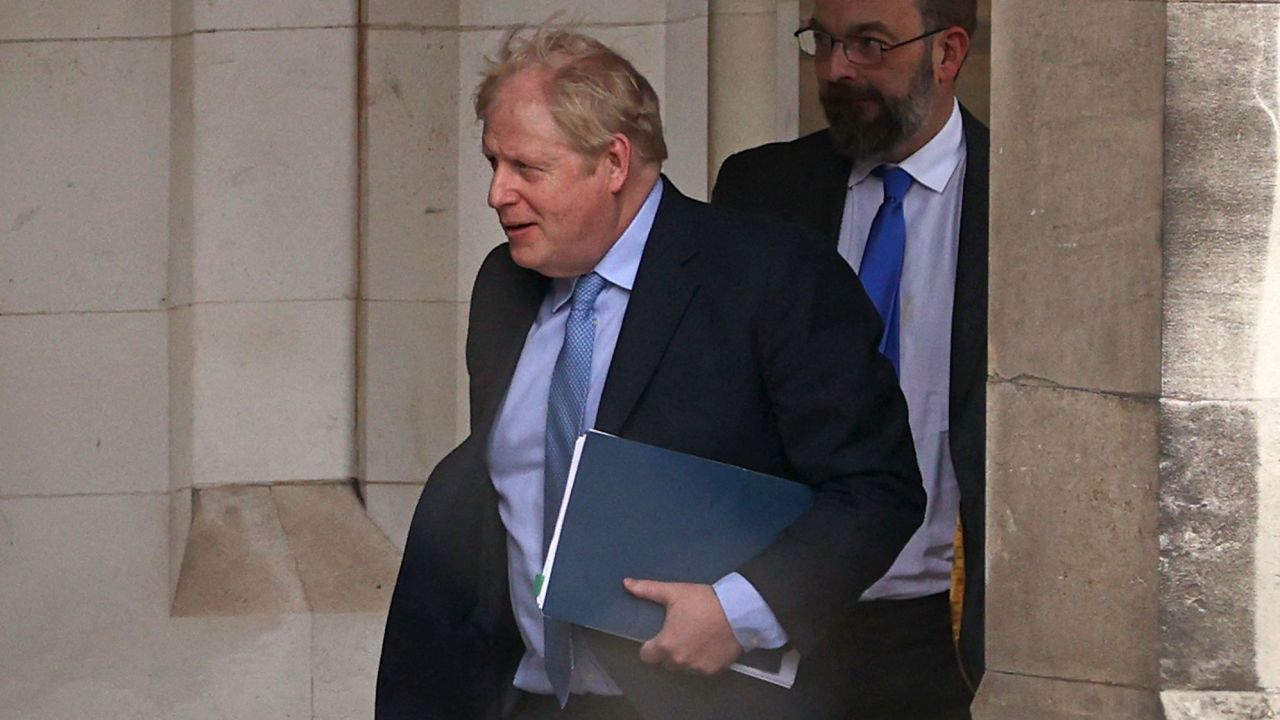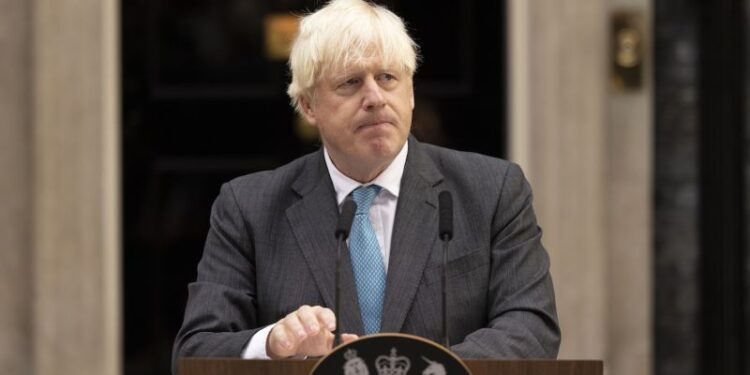[ad_1]
CNN
—
When Boris Johnson became British prime minister in the summer of 2019, he entered Downing Street as the highest-profile individual to do so since his hero, wartime leader Sir Winston Churchill, began his second stint as PM in 1951.
Johnson was nothing short of a colossus. A popular columnist, a television star, a celebrated author. For decades, his carefully honed media persona – part pseudo-intellectual; part loveable-but-out-of-touch-poshboy – won Johnson fans beyond the traditional Conservative base. For years, he was the most electorally successful Conservative in the country, serving as Mayor of London – a liberal city where the Conservatives typically struggle.
As mayor, he gained a global reputation, appearing at the closing ceremony of the Beijing Olympics; going on US talk shows as a guest; taking center stage at the London Olympics in 2012; being the human embodiment of Brexit – an earthquake in global politics and economics.
However, he leaves frontline politics a diminished figure who, for now, seems to have lost all the big arguments and is no longer in control of his legacy.
His previous fame and electoral success could not protect him from crashing down to earth as the final months of his premiership became dogged in scandals so severe that his position eventually became untenable.
Those scandals have been covered extensively in the international media. From Partygate, in which Johnson became the first sitting prime minister to be issued with a police fine, to his deputy chief whip resigning after allegedly groping someone, Johnson’s spent his last few weeks in office clinging desperately to power.
What might be less well-known outside of the UK is what happened next. For all that Johnson’s supporters agitated for his return when his successor Liz Truss was forced to resign, when push came to shove, his own party thought he was damaged goods and blocked any return to the throne.
Since then, it’s only been his most loyal footsoldiers that have continued banging the Johnson drum.
When Johnson gave evidence to a parliamentary committee – with a Conservative majority – investigating whether or not he deliberately misled parliament over Partygate, you could count his supporters in the room on one hand. They muttered and tutted at others in the room as Johnson was grilled for hours, but they represented a minority view of the people that once supported Johnson whole-heartedly.

That same day, Johnson’s dwindling influence was further underscored as he led a futile rebellion against Sunak’s new Brexit deal, something Johnson has publicly criticized. Orthodox thinking in the Conservative party now is that Sunak has saved Brexit from being a total disaster and that Johnson looks slightly ridiculous protesting Sunak’s strategy.
It is in this context that Johnson’s resignation statement should be read.
He discredits the inquiry into Partygate, saying “they are determined to use the proceedings against me to drive me out of Parliament. They have still not produced a shred of evidence that I knowingly or recklessly misled the Commons.”
He attacks Sunak’s approach to Brexit: “Our party needs urgently to recapture its sense of momentum and its belief in what this country can do. We need to show how we are making the most of Brexit … We must not be afraid to be a properly Conservative government.”
And he reminds everyone reading of the monumental battles he won at the ballot box: “We need to deliver on the 2019 manifesto, which was endorsed by 14 million people. We should remember that more than 17 million voted for Brexit.”
Johnson is a man with a keen sense of history and desperately wants his name to go down as one of the most important in Britain’s.

A little over a year ago, there was no reason why it wouldn’t. He had not only delivered Brexit in 2016, but saved it in 2019 when he took over as PM, negotiated a new deal with the EU – at the time considered impossible – and called an election at which he won an 80-seat parliamentary majority.
He nearly died during the Covid-19 pandemic, but recovered and led one of the fastest vaccine rollouts in the world. His steadfast defense of Ukraine has won him such adoration in that country that streets in the capital Kyiv have been renamed in his honor.
But all of those things may have been overshadowed.
Brexit, his personal victory, is now tarnished. Not only do the majority of Brits now consider it to have been a mistake, it was his nemesis Sunak who received praise from none other than US President Joe Biden for fixing the problems Johnson’s deal created with Northern Ireland.
His legacy when it comes to Covid won’t be the vaccine rollout, but Partygate. And the longer the war in Ukraine rolls on, the more apparent it becomes that the first land war in Europe in decades simply isn’t primarily about Boris Johnson.
The final indignity for a man who prides himself on his popularity would have been defeat at an election. Johnson and his allies can now forever write an alternative reality, where he either remained in power or came back and won the next general election.
By resigning, he has spared himself that fate. And living in denial might be the kindest thing that Johnson could possibly have done for himself and his legacy.
[ad_2]
Source link





















Discussion about this post